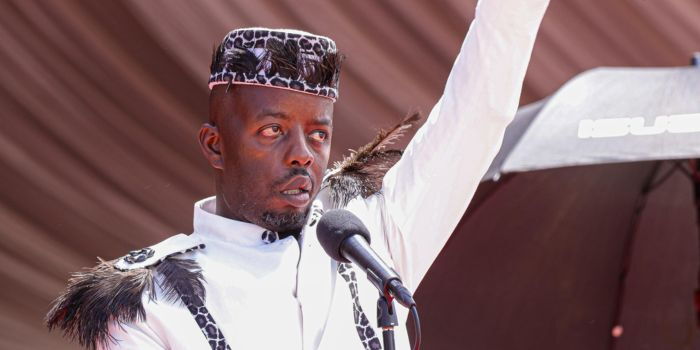Several Kenyan TikTokers have come under fire after sharing videos that mocked Raila Junior Odinga’s health condition, triggering widespread outrage across social media. The viral clips, which mimicked Raila Junior’s facial appearance and speech for comic effect, have been condemned by the public as insensitive, disrespectful, and morally wrong.
Background on Raila Junior’s Health
The uproar follows the public’s awareness of Raila Junior’s long-term medical struggle. He has openly revealed that he lives with a noncancerous brain tumor known as Acoustic Schwannoma, a rare condition that affects nerves responsible for balance, hearing, and facial movement. In his case, it has caused partial facial paralysis on the right side.
“I do suffer from a medical condition; it’s a noncancerous tumor that was in my brain, and this affected my nerve system. It happened when I was still a child,” Raila Junior shared in a past interview. “The facial paralysis doesn’t affect me in any way, but people who don’t understand what happened are the ones who are always bothered.”
Medical Perspective
According to medical experts, Acoustic Schwannoma—also known as Vestibular Schwannoma—is a slow-growing benign tumor that develops on the main nerve connecting the inner ear to the brain. Depending on its location and size, it can cause issues with hearing, balance, and facial muscle control. Raila Junior has also mentioned that the condition may be hereditary, affecting some family members more severely than others.
Public Backlash Against TikTokers
The videos mocking Raila Junior have drawn intense criticism from across the nation. Celebrities, media personalities, and ordinary Kenyans denounced the creators for using a person’s health condition as a source of entertainment. Radio host Massawe Japanni revisited her past interview with Raila Junior to remind the public of his humanity, while Esther Musila described the mockery as “disgusting and painful,” condemning such acts done “for likes and views.”
Online users echoed similar sentiments, emphasizing the need for empathy, decency, and respect in digital spaces. Many urged both the government and social media platforms to enforce stricter measures against cyberbullying and discrimination targeting people with disabilities.
Call for Digital Responsibility
This controversy has reignited a wider discussion about digital responsibility in Kenya. Critics argue that the pursuit of online fame—often called clout chasing—has led some content creators to ignore basic human values. Commentators stress that disability and illness are not punchlines and should never be used as tools for virality or ridicule.
For many Kenyans, the message is clear: compassion must take precedence over clicks. The ongoing backlash serves as a reminder that freedom of expression online must coexist with respect for human dignity.
National Support for Raila Junior
Amid the controversy, Kenyans have rallied around Raila Junior Odinga, expressing solidarity and support. The incident has become a powerful moment of national reflection, emphasizing that mocking disability is not comedy—it is cruelty. As conversations continue, many are calling for stronger ethical standards in the digital content space and greater awareness about living with health conditions.

